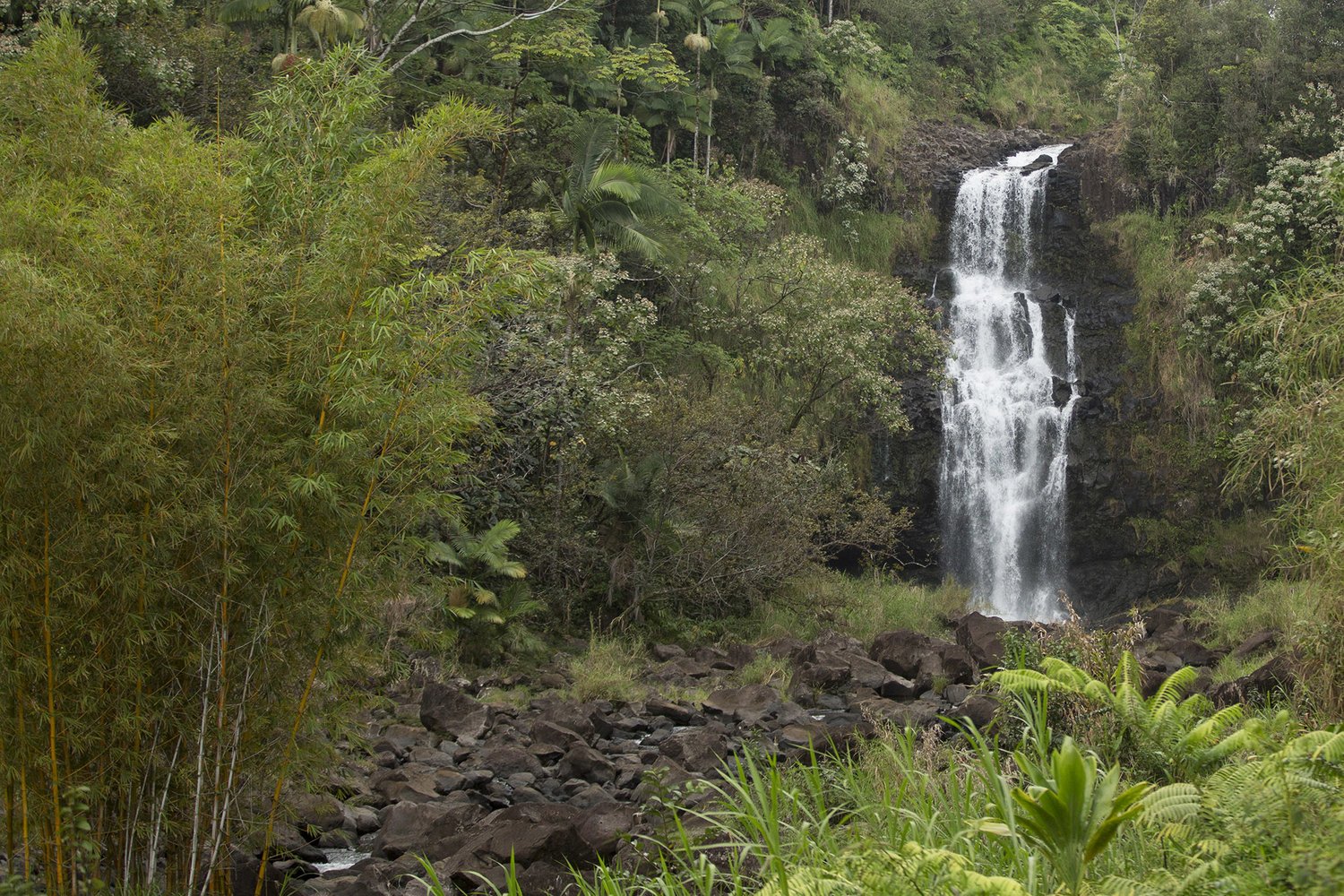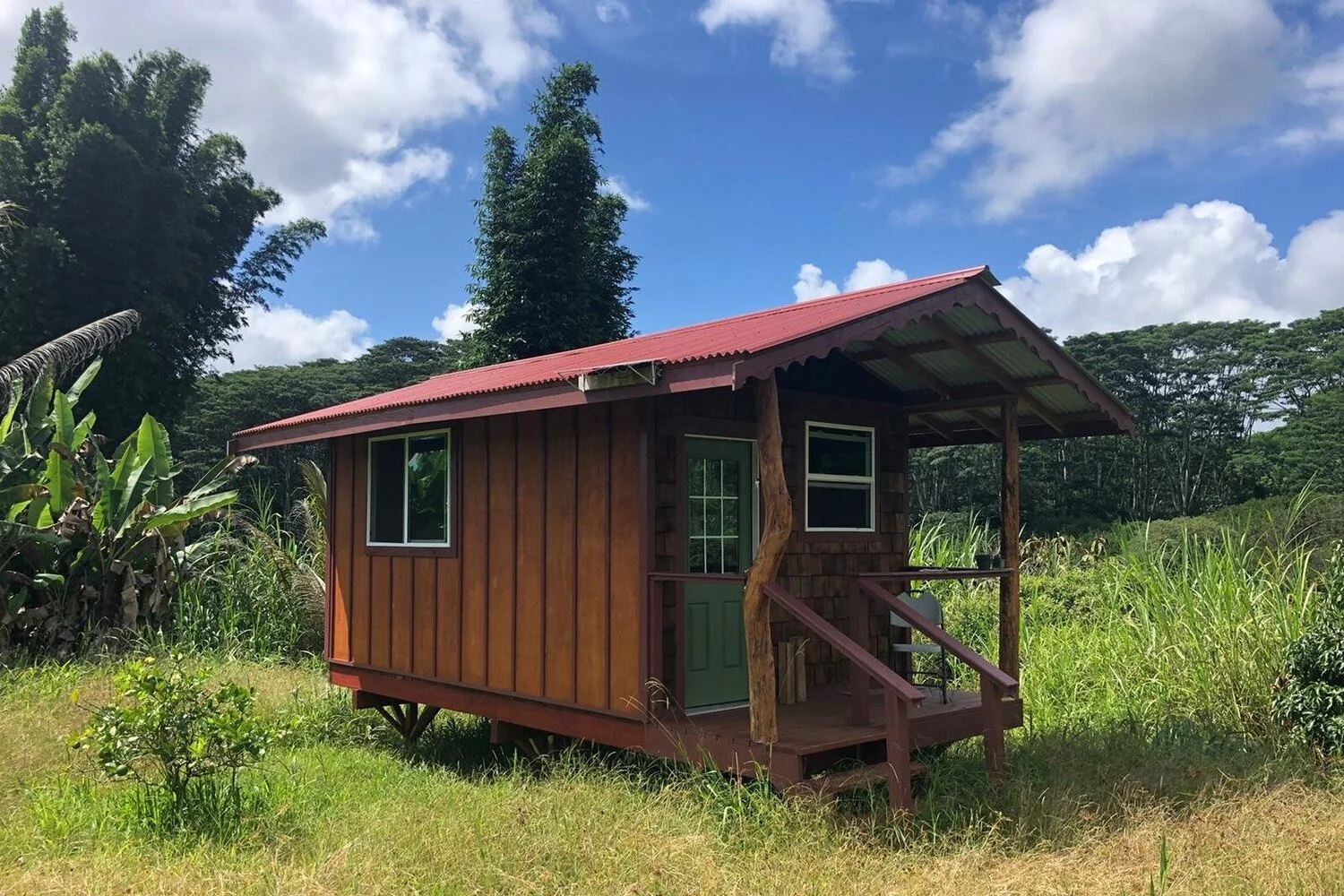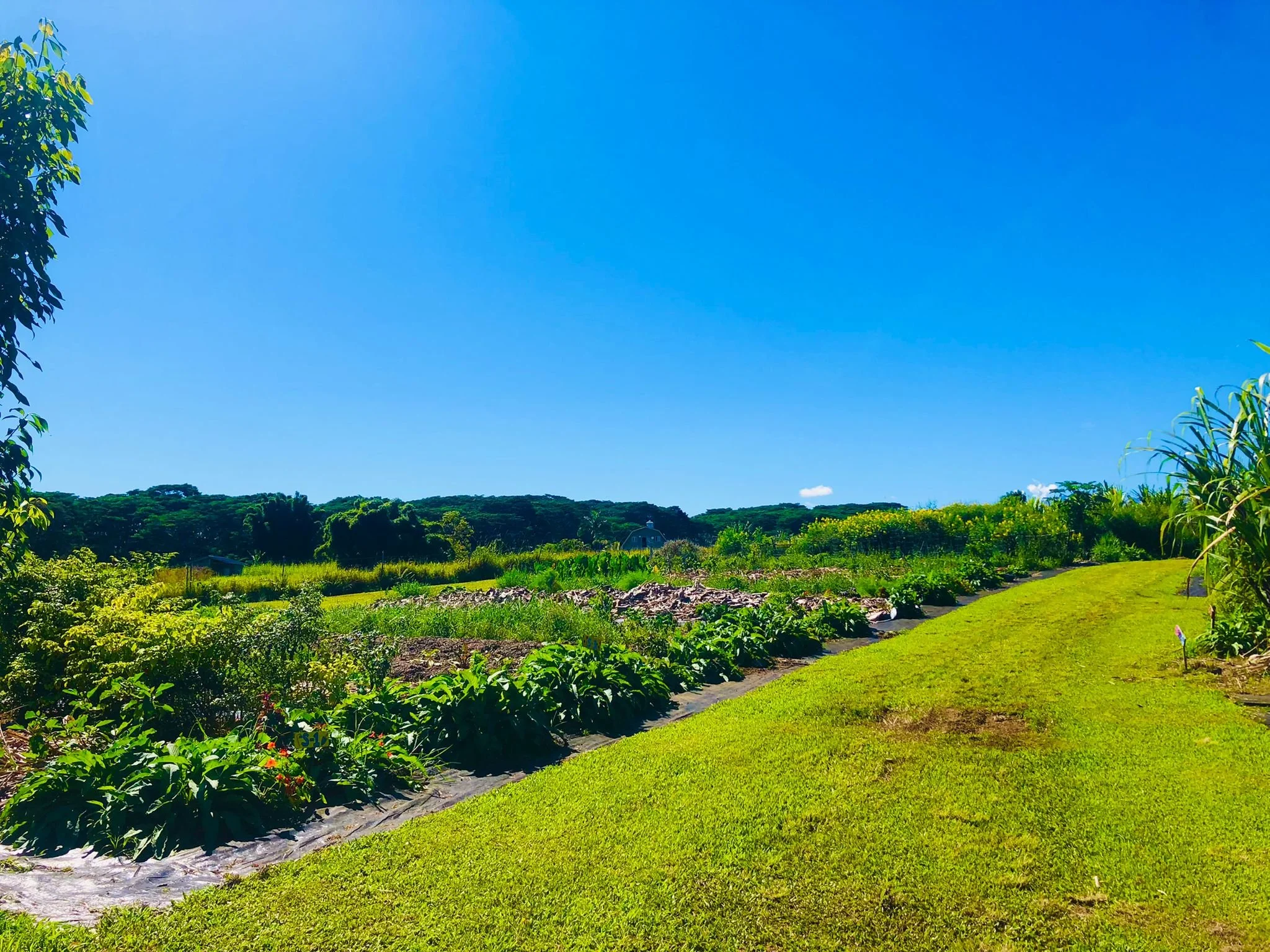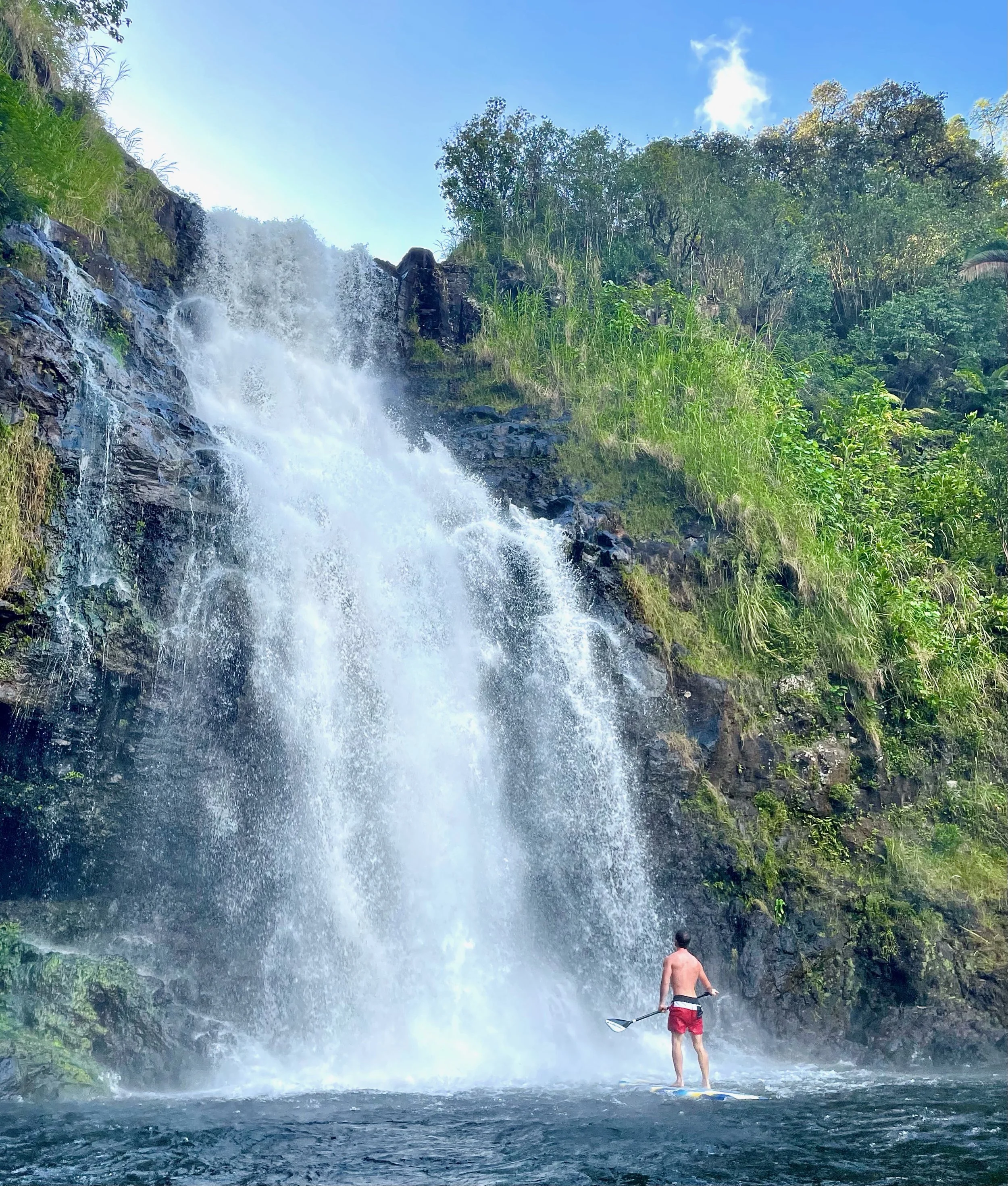
We help passionate people find a path that inspires them, and develop new skills along the way.
Learning and living is more fun together.
FAQs
The Kulaniapia Community Project is an intentional community, focused on helping members develop personal and professional skills that will empower them to live a more fulfilling and sustainable lifestyle. We live together and support each other on this journey, while working hard to take care of the land, grow our own food, and support partner organizations that enable us financially.
If you found us through platforms like WWOOF, and have experience WWOOFing, you may apply for WWOOF week stay. If you do not have experience, or would like to stay longer, applying as a Farm Stay participant will look most similar to other WWOOF opportunities. Please see the specific FAQ question that addresses how our program is similar and different to those.
-
So many! It’s really hard to get into everything our community members learn, because we are still learning so many things collectively, but here’s a summary to start.
Farming: We learn a lot through doing. Preparing beds, propagation, weed management, mulching, composting, amending the soil, harvesting, preserving, animal care and so much more!
Cooking: We make many of our meals together, and often share this experience with our guests. You can start outr assisting with cooking classes, and if you are a natural, can even lead them yourself!
Construction: Community members have access to a full workshop with tools and supplies for woodworking, electrical work, and plumbing to name a few. We also support our partner companies for bigger projects as needed. When we are building, you will learn about basic tools, framing, roofing, drywall and maybe even a bit about plumbing and electrical.
Landscaping: Everything grows here, all the time. Sometimes we are planting things, and other times we are cutting them back. Balancing these makes our home look beautiful.
Hospitality: It’s core to how we make our lifestyle financially sustainable. We will teach you how to make a home welcoming to guests, cook and serve in a fast paced setting, and welcome guests while helping them navigate the experience we have designed for them.
Adventure Guiding: Are you afraid of heights? If not, maybe you will take on the challenge of learning how to safely help our guests rappel over 120 feet down a waterfall! This includes rope work and wilderness first responder skills.
-
All Community Members pay membership dues, which cover your food, utilities, and community overhead (like management, community vehicles, etc).
In exchange for your program fees and/or membership dues, and the work you contribute, the community provides you with housing, food, education, and mentorship, all of which is designed to help you identify what you are most passionate about, and develop and refine the skills that will allow you to pursue that path in life.
Your program fees help cover communal expenses ranging from food to fuel, instructor costs, stipends for KCP management, and the costs we incur in occupying and maintaining our land, such as lease payments and equipment / vehicle maintenance.
-
Community Members live in private off-grid cabins, surrounding our communal barn or harvest house. While these cabins do not have plumbing or electricity, they do have a solar powered battery so you can use LED lights and charge your phone. These cabins are typically just a few hundred feet away from communal bathrooms, showers, and other communal spaces.
Farm Stay participants live in shared cabins (sometimes with bunk beds), surrounding our harvest house, on the farm.
-
Farm Stay participants stay in shared cabins (sometimes with bunk beds), whereas Community Members have more comfortable private living spaces, whether in a standalone cabin, or private room in a cabin.
This is one of the things your membership dues enable.
-
We provide basic staples (think bulk section of natural food store) and produce, eggs, etc. from our farm. Since you will help grow this food, we have found that it makes it particularly nourishing and delicious!
Please note, most community members supplement what we provide. If you do not have another source of income, or a large savings account, you may be eligible for food assistance from the state, and we can help you apply, if you are a full Community Member.
-
Community Members and Farm Stay participants, regardless of their program, are expected to contribute 25-30 hours per week on a volunteer basis.
Farm Stay participants generally work 4x 5-hour shifts on the farm and one 5-hour shift in either hospitality or construction/landscaping.
Community Members typically work 3x 8-hour shifts in the community and with our partners that enable us financially so they have time to spend two days a week working in a paid capacity.
These shifts may be allocated among farming, construction, grounds maintenance, community operations, and supporting partners that enable us financially.
Common shifts include: farm work, manual labor / construction, making breakfast for guests, housekeeping, cooking classes, farm tours and hosting / welcoming guests.
-
For Community Members, we make a point to teach each member how to perform each of the tasks that make our community work. What that means is you will see big burly boys cleaning rooms, and itty bitty girls swinging hammers, along with every task and gender identity in-between.
Once you have learned how to do all the things, and if you both excel and and have a preference for certain types of shifts, we will of course take that into consideration when making the weekly schedule. However, it is important to remember that we can’t always accommodate every preference, and some weeks are just tough.
Farm Stay participants will typically focus more on farming and landscaping.
-
We are just about 10-15 minutes away from Hilo, Hawaii.
While Farm Stay participants do not have vehicle privileges, Community Members in good standing, with a valid drivers license and 5 years driving experience, are able to checkout vehicles. There is a fee when this is for personal use, but not when used communally, such as group trips to the store, or weekend adventures open to anyone.
Each community member who checks out a vehicle is financially responsible for that vehicle until returned, and this is one of the reasons a $500 deposit is required to join our community.
-
Hosting guests is a big part of what makes our lifestyle and community sustainable. Our common areas are all shared with guests that stay in our off-grid cabins, and in turn, this provides a major source of income for our community.
This means that our common areas must always be kept clean, to a hospitality standard. If you have ever lived with roommates, you will appreciate how nice this is for everyone involved.
Farm Stay participants do not have access to common areas shared with guests, except for community events like potlucks, etc.
-
We take responsibility seriously in everything we do. Responsible consumption is not necessarily a problem, but any behavior that negatively impacts our community, especially our guests, is grounds for dismissal.
-
If you found us through WWOOF, are over 21 years old, and have expeirence WWOOFing, you may apply for a WWOOF week stay. It’s a great way to see if you may be interested in staying longer, in one of our programs that are inspired by WWOOF.
If you do not have experience, are 18-20 years old, or would like to stay longer, applying as a Farm Stay participant will look most similar to other WWOOF opportunities.
If you would like to stay for even longer, we encourage you to apply as a Community Member, as our community program offers many benefits beyond what is typical for a WWOOF program.
Whille WWOOF week particpants only help with farming, one thing that is different than WWOOF for Farm Stay participants is that you will help out with tasks that are not strictly farming related.
Another thing that is different from WWOOF is that you may have the opportunity to earn extra money, after your community hours, if you join as a Community Member.
Overall, we have had great experiences welcoming community members that have found us through WWOOF, both with Farm Stays and as Community Members.









